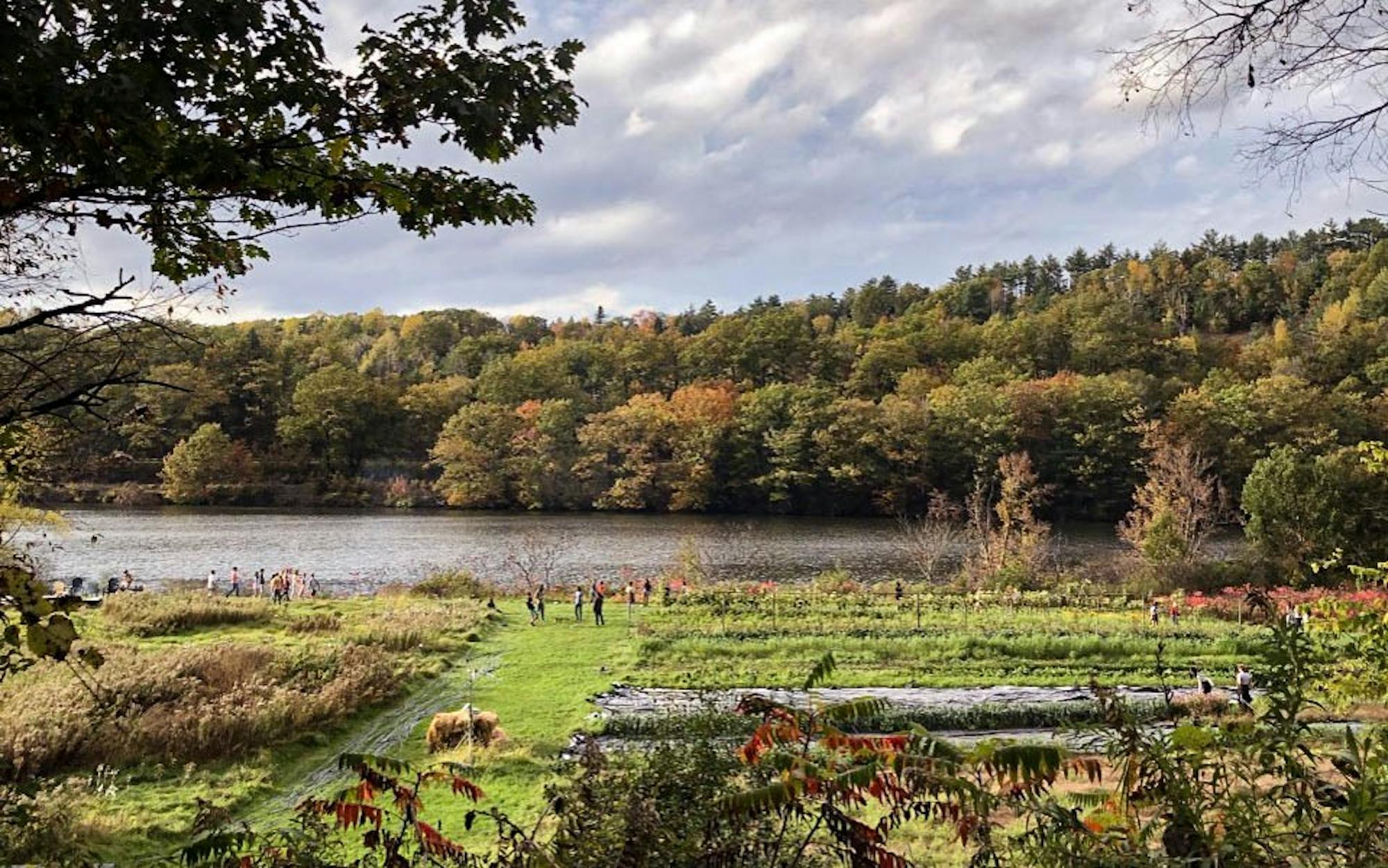Many Dartmouth community members know the student-run Farm Club best as the primary organizer behind Dartmouth’s annual Harfest — an annual tradition at the O-Farm where students come together to enjoy the fall festivities and celebrate autumn — but the student-run Farm Club does much more.
The club backs programs ranging from beekeeping — where both club members and the public harvest honey and learn about bee colonies — to the sugar crew, a spring break program in which ten to twelve students help make maple syrup and learn about the maple trees and ecology in the area.
Farm Club also runs several programs that give back to the community by distributing the produce from the O-Farm itself. Farm Club member Lucas Rathgeb ’22 elaborated on these initiatives, including the “Moms in Recovery” program, a community-supported agriculture program in which the O-Farm partners with the Dartmouth Hitchcock Medical Center to provide fresh vegetables to mothers recovering from addiction.
“We also work with Willing Hands, and, every once in a while, the Farm Club will go cook dinners in the Upper Valley Haven and White River Junction,” Rathgeb said. “We also help with the student food pantry and Dick’s House making sure that students over break are able to get consistent meals when Dartmouth Dining is not up and running at full capacity.”
Willing Hands, one of the organizations that the Farm Club sends produce to, is a food distribution organization that delivers food to sites across the Upper Valley. Willing Hands program coordinator Sara Cavin said that the organization started as a one-man operation, but now serves over 80 recipient sites.
“The way Willing Hands began was with an employee from the Hanover Coop who noticed a lot of still-decent produce leaving the store and going in the trash,” Cavin said. “With the Coop’s blessing, he started taking that to the Upper Valley Haven — one of the biggest food shelves in the area — and a couple of other recipient sites, and it grew from there.”
Cavin also explained the goals of Willing Hands.
“That’s Willing Hands’ premise — we want to make sure that we’re fighting hunger in the region and improving the diets of people who usually can’t afford that fresh healthy food that is otherwise going to waste,” Cavin said.
The Farm Club provides a third of all produce they grow to both Willing Hands and the “Moms in Recovery” program — this is part of the club’s “three-thirds growing model.” The second third of the produce is used to feed the volunteers and members of the club through community-building events at the O-Farm. The last third is used to generate revenue for the club itself through a student-run farm stand or is sent to Moosilauke Ravine Lodge and the campus dining halls.
When asked about the Farm Club’s transition from a virtual school year, O-Farm Manager Laura Braasch noted that Harfest was one of the ways in which students could come back and fully celebrate a previously limited space.
“Now, we see the farm as an opportunity for hosting in-person events and gatherings, which is a real blessing, since now students are able to enjoy the space fully,” Braasch said.
Rathgeb echoed Braasch’s sentiments.
“Now that restrictions are a little less severe, we are able to fill out a van for full workdays, which is very helpful on the farm to get more people out there and get their hands in the dirt and get the work that needs to be done done and the learning that we want to happen to happen,” Rathgeb said. “It’s been really great for us to open that back up in those ways.”
Rathgeb said that they hope this community spirit will remain in the future so that Farm Club can be a space for people to rethink sustainability and food.
“[Farm Club is] also about providing a space for people to think about the implications of food inequality and food sovereignty as well, all these different things that come into play when we think about the politics and culture surrounding food,” they said. “Having the Farm Club be a space for all those things is really my hope for Farm Club in the future.”




